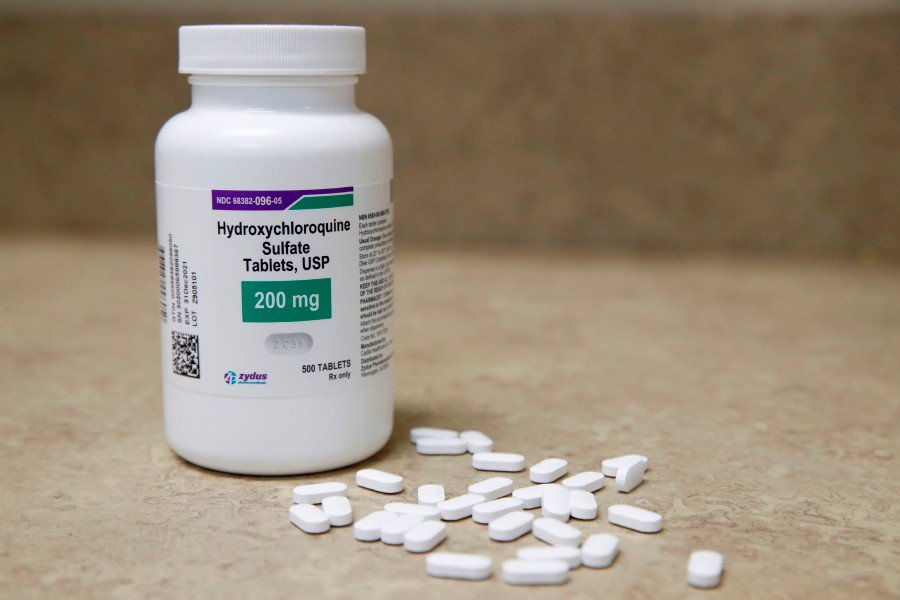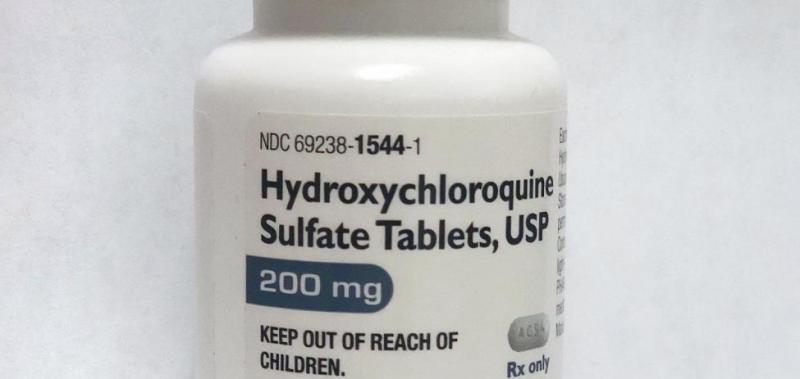The World Health Organization has suspended testing the malaria drug hydroxychloroquine in COVID-19 patients due to safety concerns.
The WHO Director-General, Tedros Adhanom Ghebreyesus made this known on Monday.
Hydroxychloroquine has been touted by U.S. President Donald Trump and others as a possible treatment for the disease caused by the novel coronavirus.

The announcement of the suspension of hydroxychloroquine for testing follows the publication on Friday by the Lancet medical journal of an observational study on hydroxychloroquine and chloroquine and its effects on hospitalized COVID-19 patients.
The study published in the Lancet peer-reviewed journal looked at over 96,000 virus patients.
It found a higher risk of abnormal heartbeats, or arrhythmias, that could cause a heart attack in those treated with hydroxychloroquine or chloroquine.
Director-General of the World Health Organisation, Tedros Adhanom Ghebreysus said: “The executive group has implemented a temporary pause of the hydroxychloroquine arm within the Solidarity trial, while the safety data is reviewed by the data safety monitoring board. The other arms of the trial are continuing. This concern relates to the use of hydroxychloroquine and chloroquine in COVID-19.”

He said that more than two months ago, the WHO initiated its “Solidarity Trial” to evaluate the safety and efficacy of four drugs and drug combinations against COVID-19.
Earlier this month, President Trump said he was taking hydroxychloroquine to ward off the coronavirus.
The WHO has previously recommended against using hydroxychloroquine to treat or prevent coronavirus infections, except as part of clinical trials.
Also, head of WHO’s Emergencies Programme, Mike Ryan, said: “So as such it is not related to any problem, there is no problem at all right now within the solidarity trial, there is no issue, there is no signal, we are just acting on an abundance of caution based on the recent results of other studies to ensure that we can continue safely with that arm of the trial.”
“All countries need to remain on high alert here. All countries need to be ready to rapidly detect cases. Even countries that have had success and suppression, as Mike (Ryan) has said. Even countries that have seen a decline in cases must remain ready,” WHO Epidemiologist, MAaria Van Kerkhove said.

The decision to pause the trial was done out of an abundance of caution while safety data is reviewed.
He also stated: “Right now, countries in Europe, countries in North America, many other countries around the world, in south east Asia, have to continue to put in place the public health and social measures, the surveillance measures, the public health measures, the testing measures and a comprehensive strategy to ensure that we continue on a downward trajectory and that we don’t have an immediate second peak.”
The WHO said that other arms of the so-called ‘Solidarity trial’ – a major international initiative to hold clinical tests of potential treatments for the virus – were continuing.
The Lancet study looked at patient medical records in 671 hospitals across six continents, making it the most extensively published evaluation of the drug’s impacts on coronavirus patients.





